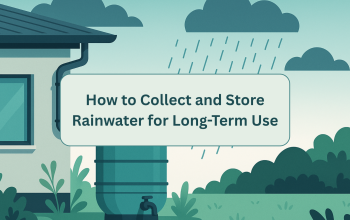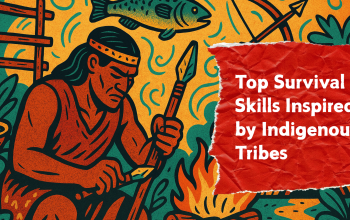Survival Myth–Busting: What Actually Works and What Doesn’t?
In the unpredictable world of survival, misinformation can be a silent killer. From Hollywood blockbusters to viral internet posts, myths about surviving in the wild often spread faster than wildfire and they can be just as dangerous. When you’re lost, injured, or facing a crisis, the wrong advice could turn a tough situation into a deadly one. At Survival Siren, we’re here to cut through the noise, debunking common survival myths with science-backed facts and practical tips that could save your life. Ready to separate truth from fiction? Let’s get started.
Why Busting Survival Myths Matters
Falling for survival myths isn’t just a rookie mistake—it can have serious consequences. Here’s why clearing up these misconceptions is critical:
With stakes this high, let’s dive into eight pervasive survival myths and replace them with advice you can trust.
1. Myth: You Can Suck Out Snake Venom
Fact: Sucking out venom is ineffective and risky.
Hollywood loves this one—someone gets bitten, and the hero dramatically sucks out the venom. In reality, this doesn’t work. Venom spreads quickly through your bloodstream or lymphatic system, and sucking it out won’t remove enough to matter. Plus, you could introduce bacteria into the wound or even absorb venom through cuts in your mouth.
What to Do Instead:
2. Myth: Moss Only Grows on the North Side of Trees
Fact: Moss grows where it’s moist and shady—not just north.
This navigation trick sounds clever, but it’s unreliable. In the Northern Hemisphere, the north side of trees gets less sun, so moss might favor it—but wind, terrain, and tree cover can shift that. In dense woods, moss can grow all around a trunk.
Better Navigation Tips:
3. Myth: Drinking Urine Will Hydrate You
Fact: Urine’s salts and toxins dehydrate you more.
Yes, urine is mostly water, but the salts, urea, and waste your body expels make it a hydration nightmare. Drinking it might feel like a desperate fix, but it’ll strain your kidneys and leave you thirstier.
Better Hydration Options:
4. Myth: Rubbing Two Sticks Together Makes Fire Easily
Fact: Friction fire–starting is tough and requires practice.
Rubbing sticks works yes, but it’s not the quick fix TV shows suggest. Methods like the bow drill demand dry wood, perfect technique, and a lot of patience—none of which are guaranteed in a survival scenario.
Realistic Fire–Starting Tips:
5. Myth: Follow a River to Find Civilization
Fact: Rivers can lead anywhere—sometimes deeper into trouble.
Rivers often flow toward settlements, but not always. They can twist into remote areas, drop over cliffs, or turn into raging rapids, draining your energy or putting you at risk.
Safer Strategy:
6. Myth: You Can Eat Anything Animals Eat
Fact: Animals can digest foods that poison humans.
Squirrels munch on mushrooms you’d regret, and birds peck at berries that could make you sick. Different species, different rules—don’t roll the dice on your stomach.
Safer Foraging Guidelines:
7. Myth: Hypothermia Only Happens in Freezing Weather
Fact: You can get hypothermia above 50°F if wet or windy.
Hypothermia strikes when your body loses heat faster than it makes it. A chilly rain or a stiff breeze can drop your core temperature dangerously, even in mild weather.
How to Stay Warm:
8. Myth: Fires Always Help in Survival Situations
Fact: Fires can backfire in risky settings.
A fire’s warmth and light are great—until they attract danger or spark a wildfire. In hostile areas or extreme conditions, it’s not always your friend.
When to Skip Fires:
Alternatives:
Frequently Asked Questions (FAQs)
1. What survival myths are most dangerous?
Myths like sucking venom or drinking urine top the list—they can worsen injuries or dehydrate you when you’re already vulnerable.
2. How can I spot survival myths?
Check advice against trusted sources: wilderness experts, military manuals, or medical pros. If it’s too simple or sensational, dig deeper.
3. Are TV survival shows legit?
They’re often more drama than fact. Enjoy the thrill, but verify techniques before betting your life on them.
Conclusion
Survival isn’t about flashy tricks or old wives’ tales—it’s about what works when the chips are down. Myths can mislead, exhaust, or even endanger you, but real knowledge cuts through the clutter. At Survival Siren, we’re all about arming you with skills that stand up to the wild. Ditch the fiction, embrace the facts, and get ready to thrive.
🧭 Which myth shocked you most? Drop your thoughts in the comments below!



